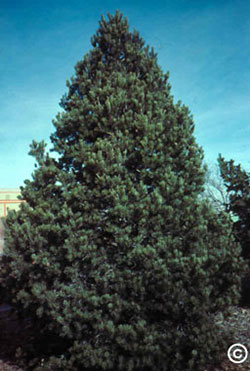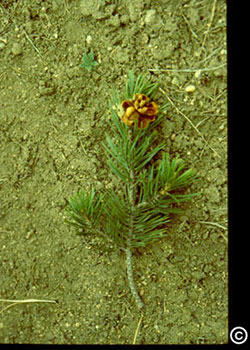
Where do pinon trees grow?
Piñon trees are a small, relatively slow-growing pine. The state tree of New Mexico, piñon grows in native stands as far north as Fort Collins, often with native junipers. In fact, vast areas of the Four Corners region are referred to as piñon-juniper woodlands. Piñon nuts and firewood are commonly in demand from these areas.
How much water should a pinon tree get?
Piñon pines are adapted to the nine to 14 inches of annual precipitation it receives in its native habitat. When used as a Colorado landscape, it grows best in drier soil that drains well. Piñons are a very good choice for xeriscape landscapes. Avoid planting piñon in lawn areas where regular irrigation is required.
While a piñon tree will need to be watered several times after it has been transplanting to get it established, it is not tolerant of long-term and regular irrigation, especially in heavy clay soils. Plant piñon pines on berms or dry areas and avoid low spots and areas near building down spouts.
How big do pinon trees get?
Under ideal conditions, piñon may reach 25 feet tall and 20 feet wide after many years. Nuts will likely not develop unless there are several piñon trees in the yard. Single trees will develop nutshells in cones, but nutshells will be hollow due to a lack of wind-borne pollen from other trees.
For “Piñon decline” refer to message number 1465.
For more information, see the following Colorado State University Extension fact sheet(s).
- Xeriscaping: Trees and Shrubs
- Evergreen Trees
- Trees and Shrubs for Mountain Areas
- The Science of Planting Trees
- Piñon Pine Diseases and Insects
For more information, see the following Planttalk Colorado™ script(s).
For more information, see the following Planttalk Colorado™ video(s).


